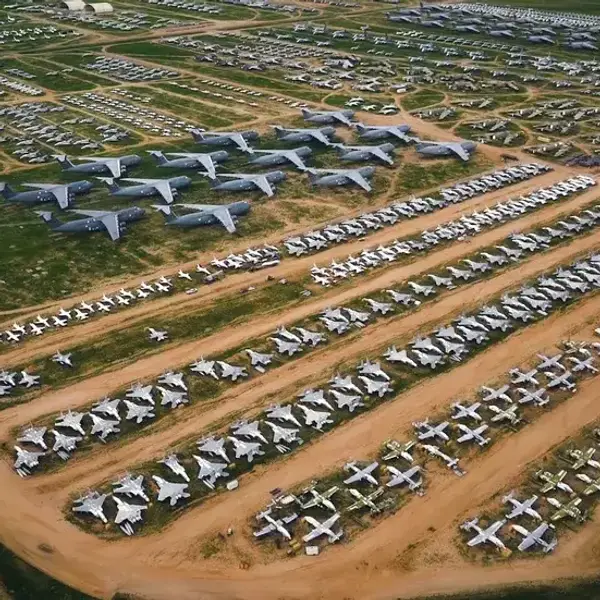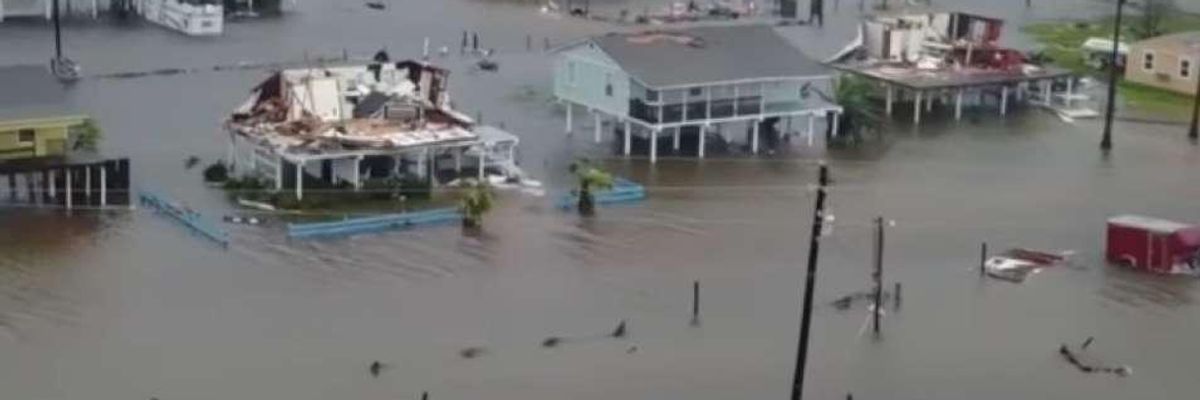Hurricane-turned-Tropical Storm Harvey unleashed the fury of a warming planet on the Gulf Coast of Texas this week, leaving hundreds of thousands displaced and homeless, thousands languishing in crowded shelters, and killing at least 28 people. It is projected to be the costliest disaster in the nation's history, with the heaviest rainfall ever recorded in the continental U.S., inundating a number of cities, including Houston, the fourth-largest and most diverse city in the United States.
Houston, the Petro Metro, is home to one-quarter of the petroleum refining capacity in the United States. Include the entire Gulf Coast, and the percentage increases to half. In the midst of this massive storm, sprawling petrochemical facilities were forced to shut down abruptly, ejecting millions of pounds of toxins into the air, impacting most heavily the poorer communities of color near where these plants have historically been built.
On Tuesday, President Donald Trump, peddler of the lie that climate change is a hoax created by the Chinese to hurt the U.S. economy, made a predictably superficial visit to Texas. "What a crowd, what a turnout," Trump boasted as he landed in Corpus Christi. He made no mention of the victims.
Climate denial in the face of Harvey's devastation is incomprehensible, ignorant and immoral.
Given that both Trump and Texas Republican Gov. Greg Abbott are climate change deniers, it is important to understand the science. "It's not debatable now. These are all well-established facts," Dr. James Hansen explained on the "Democracy Now!" news hour. He is the former top climate scientist at NASA and current director at Climate Science, Awareness and Solutions at Columbia University's Earth Institute. "With the beginning of changes in atmospheric composition, caused mainly by burning fossil fuels, the planet is getting warmer, and sea level has begun to go up, because the ocean is getting warmer and because ice is melting." He continued: "The amount of water vapor in the atmosphere is increasing because the atmosphere is getting warmer, and therefore the amount of water being dumped during these storms is larger because of human-made global warming. Thunderstorms, tornadoes, tropical storms all get their energy from the latent energy of water vapor. There are substantial human-made effects on these storms." Larger storm surges. More rain. Stronger storms.
Intensified by climate change, this storm has slammed into the epicenter of the U.S. petroleum industry.
The flooding is bad enough. Then you have the toxins released. Bryan Parras, as organizer for the "Beyond Dirty Fuels" campaign with the Sierra Club in Houston and co-founder of Texas Environmental Justice Advocacy Services (t.e.j.a.s.), works in the poor and working-class communities of color in Houston, where people live up against the fences of large, toxin-spewing petrochemical plants. "All of the facilities, all of the refineries went into voluntary shutdown mode. When that happens, they often have to go through the process of burning off these excess chemicals. But it is a dirty burn. So you can see actually the black smoke ... unfortunately, that adds thousands of pounds of cancer-causing chemicals to the air," he told "Democracy Now!."
Writer and activist Naomi Klein has long made the connection between disasters and economic opportunism. A key ingredient, she says, is a compliant media. "You turn on any coverage, and you hear that word over and over again, but what you don't hear, or you hear very, very rarely, is an explanation for why the word 'unprecedented,' 'record-breaking' -- why these words have become meteorological cliches," she said on "Democracy Now!." "We hear them all the time, because we're breaking heat records year after year. We're seeing record-breaking wildfires, record-breaking droughts, record-breaking storms, because the baseline is higher."
Klein continued: "Nobody is saying that climate change caused this storm. What we're talking about are what are the superchargers of this storm, the accelerants that took what would have been a disaster, in any situation, and turned it into this human catastrophe."
That is a central tenet of climate science: You can't attribute any given weather event to climate change, but human-induced climate change is making extreme weather events stronger and more frequent, more costly, more deadly. While the people in Texas and Louisiana suffer the final days of rain and begin recovery, over 1,200 people have been killed by massive floods in Bangladesh, India and Nepal. The planet is drowning in denial. Climate change is real, and needs to be addressed.




